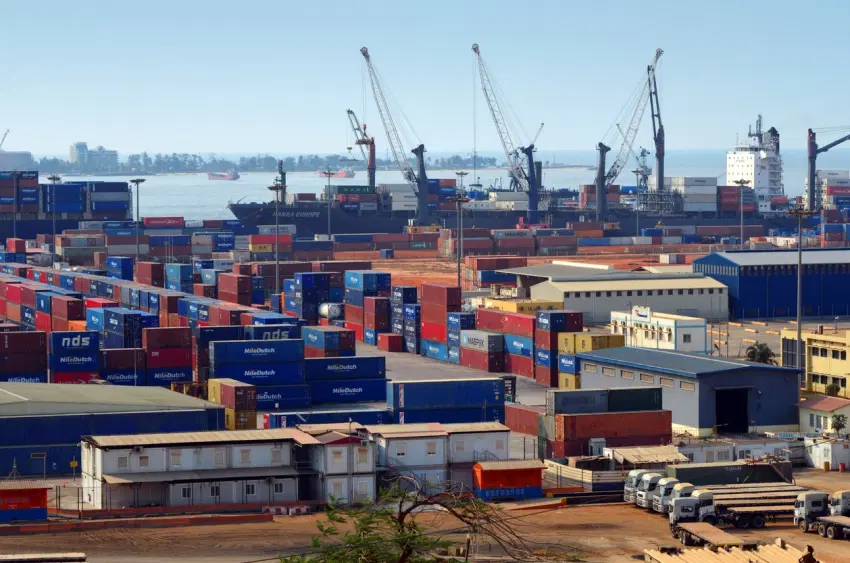BUSINESS EXTRA

MARITIME STAKEHOLDERS LAMENT $500M ANNUAL LOSS FROM UNREGULATED SHIPBROKING
Maritime industry experts have raised concerns over Nigeria’s continued loss of more than $500 million annually due to the lack of a structured and regulated shipbroking framework.
Speaking with journalists in Lagos, Capt. Tami Adu attributed the substantial revenue leakage to the absence of oversight and compliance monitoring in vessel chartering activities. He noted that shipbrokers play a vital role in connecting cargo owners with vessel operators while ensuring technical compliance, vessel vetting, and market intelligence—key elements of safe and profitable maritime operations.
Adu further expressed disappointment over the ineffective monitoring of the cabotage tax—a mandatory two per cent charge on vessel contracts—highlighting that the informal nature of vessel chartering in Nigeria prevents proper documentation and remittance of transactions.
“If certified shipbrokers handled these transactions, every deal would be properly recorded and revenue fully remitted. At present, we are losing over $500 million yearly,” he stated.
He emphasized the importance of international standards, pointing out that although the London-based Institute of Chartered Shipbrokers (ICS) provides global certification and professional training, many Nigerian operators sidestep these benchmarks, resulting in poor contract execution and vessel inefficiencies.
In his remarks, Chairman of the Nigeria Chapter of ICS, Mr. Sesan Ajayi, disclosed that fewer than 40 certified shipbrokers operate in Nigeria. He warned that the sector is overrun with unqualified individuals lacking proper training, which jeopardizes trade reliability and Nigeria’s ability to fully harness opportunities from frameworks like the African Continental Free Trade Area (AfCFTA).
Ajayi underscored the importance of effective shipbroking in facilitating intra-African trade, reducing logistics costs, and bridging infrastructure gaps within the maritime sector. He revealed that Nigeria’s logistics costs currently account for 23% of its Gross Domestic Product (GDP), nearly double the global average of 12%—a disparity largely caused by inefficiencies in shipping and trade logistics that professional shipbrokers are equipped to address.
While commending the Ministry of Marine and Blue Economy for launching a national policy, Ajayi emphasized that its success hinges on manpower development and robust regulatory enforcement.
“Shipbroking is still an emerging field in Nigeria, but with the right structure, it can transform cargo movement, vessel sourcing, and contract execution locally,” he added.
Supporting this view, ICS senior member Mr. Abdulrasak Arije described the institute as the benchmark for maritime professionalism and a credible voice in policy and regulatory discussions. He reiterated ICS's commitment to training and certifying professionals in shipbroking, chartering, vessel sales, and cargo specialization to uphold global standards.
“At ICS, we deliver internationally recognized training and uphold ethical and efficient practices. Our goal in West Africa is to build a workforce that aligns with international standards. A strong maritime policy needs to be complemented by skilled professionals, which is what ICS offers,” Arije said.
He also commented on the stagnant Cabotage Vessel Financing Fund (CVFF), which was established nearly 20 years ago to support indigenous shipowners but has remained largely inactive.
“CVFF was meant to empower Nigerian shipowners, yet bureaucratic delays and trust issues between regulators and beneficiaries have stalled its impact,” he explained.
With the maritime sector’s contribution to Nigeria’s GDP currently below one per cent, stakeholders are calling for the full integration of shipbroking into national maritime policy. They believe that with enforcement and professional oversight, shipbroking could significantly boost revenue generation, trade efficiency, vessel standards, and investor confidence.
"This represents a significant development in our ongoing coverage of current events."— Editorial Board









